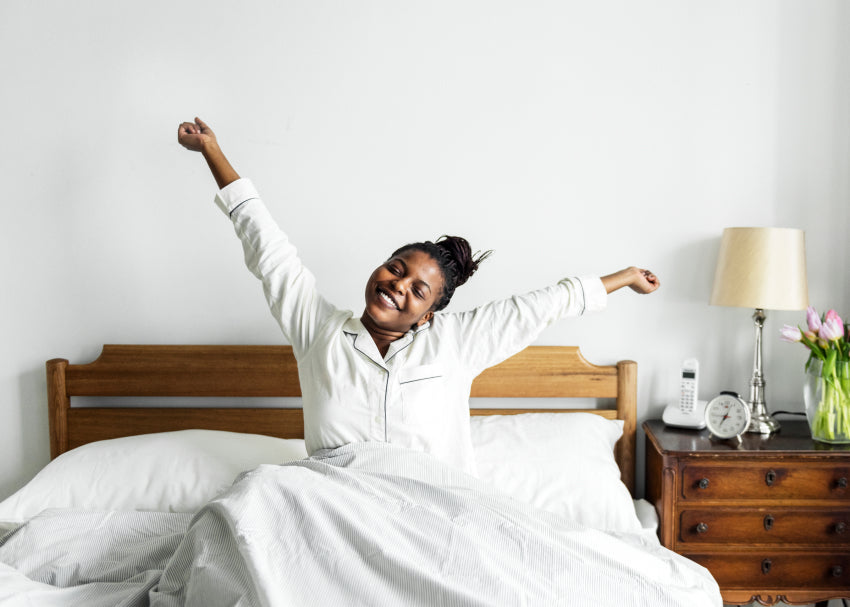Are imbalanced hormones keeping you up at night? If so, the reason may surprise you. We all know that sleep plays a crucial role in our overall health and sense of wellbeing. Unfortunately, few people actually get enough of it or at a sufficient quality.
Inadequate rest does more than just make you feel tired and unable to perform daily tasks successfully — it also negatively affects your hormones. Read on to learn why quality sleep matters so much for your hormonal health and what you can do to help your body get the shut-eye it needs to function properly and help you feel your best.
Understanding Your Circadian Rhythm
It is impossible to think about your body’s sleep patterns without also acknowledging your circadian rhythm, which helps regulate hormone balance, blood pressure, sugar levels, and body temperature. This 24-hour cycle enables you to maintain an optimum sleep-wake cycle.
When your circadian rhythm is disrupted, you experience various sleeping problems, including having difficulty falling asleep, awakening too soon, or frequently waking throughout the night, in addition to an overall decline in your sleep quality. Regarding daily functioning, you may experience the following symptoms as well.
- Confusion
- Shortened attention spans
- Memory lapses
- Energy loss
- Mood changes
How Sleep Impacts Your Hormones
Sleep deprivation is a vicious cycle when it comes to the following hormones — the more tired you are, the more unbalanced your hormones become, and the more unbalanced your hormones, the worse you sleep.
CortisolResearch has shown a direct link between sleep quality and cortisol, also known as your stress hormone, that plays a positive role in helping you stay alert during the day. But when you have not gotten enough sleep, your body feels the stress. As a result, your adrenal glands ramp up your cortisol levels, leading to weight gain, muscle weakness, irritability, and acne, as well as a decrease in the production of sex hormones. The resulting imbalances in estrogen, progesterone and testosterone levels cause issues with fertility, libido, and sexual function.
InsulinNot getting enough sleep interferes with your body’s metabolic functioning, causing adrenal stress and increases in blood sugar and cellular insulin resistance as the body cannot absorb glucose from the blood. Even infrequent bouts of poor sleep affect your glucose tolerance and increase your risk of developing Type 2 diabetes. This is because your circadian rhythm affects when the pancreas produces and releases insulin, and if it is not released optimally, the insulin is less effective.
Leptin and GhrelinHave you ever felt confused about whether you were hungry or tired? That is a common occurrence for some because sleep deprivation decreases the body’s production of leptin, the hormone that helps suppress your appetite and lets you feel sated enough to signal to your brain it is time to stop eating.
Similarly, ghrelin is your body’s appetite-stimulating hormone. Sleep deprivation causes a see-saw effect in that as leptin levels lower, ghrelin levels rise, leading to insatiable hunger.
How to Sleep Better
Recognizing how vital sleep is to our health, what can you do to help your body get the amount and quality it needs to help you feel your best? The following are some easily actionable tips to help you feel rested and keep your hormones balanced.
- Ensure your bedroom isn’t too hot. The ideal temperature is between 60 and 67 degrees Fahrenheit.
- Keep the room as dark as you can and avoid using technology right before going to sleep.
- Maintain a bedtime routine that helps you be calm. This could include a warm bath, meditation, or reading.
- Replace your mattress if it is old or uncomfortable.
- Avoid overeating, consuming caffeine, or drinking too much alcohol before bed.
An effective natural melatonin supplement can also help you sleep better and longer. Similarly, having sex before going to sleep can help due to the release of feel-good hormones like oxytocin and prolactin following orgasm, as well as lowering cortisol levels allowing your body to relax more fully as you drift off to sleep.
Hit the Snooze Button on Sleep Issues With Dr. Randolph’s
You do not have to toss and turn unnecessarily. The knowledgeable team at Dr. Randolph’s Ageless and Wellness Center can help you bring your hormones into balance so you can stop the frustrating, harmful cycle of dissatisfying or insufficient sleep. Contact us today so you can experience the difference a restful night can make on your overall health and quality of life.
